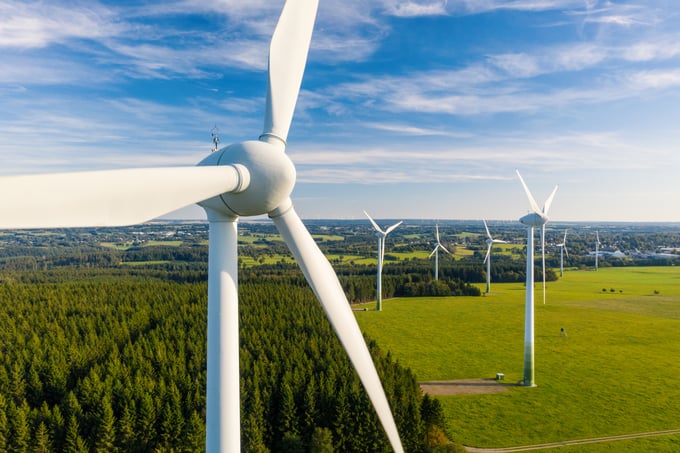The cost of Renewable Energy Guarantee of Origin (REGO) certificates hit a record high of £20 in October 2023. This represents a doubling in price since less than a year ago – in November 2022 REGOs were going for an average of £8.75. But the hike in price is even more startling when seen in a longer-term context. When analysts Cornwall Insight began their quarterly REGO pricing survey in December 2019, prices were comfortably below a pound per REGO. Going even further back, suppliers could snap them up for about 20p.
The historically low price of REGOs meant that energy suppliers could use them as a way to “green” their products – retailers could buy their energy from a variety of sources, including those providing fossil fuels, and purchase enough REGOs to cover consumption through green tariffs. But, the truth about ‘renewable’ supplier tariffs is far from simple.
Serious hidden risks of REGOs
Even in the days when REGOs cost just a few pence, this strategy had more holes than a crumpet. When a business signs up to a REGO-backed "green" tariff from their supplier, this does nothing to cut their energy-related carbon emissions in the real world. Their energy supply still comes from the grid, where ‘clean’ energy can’t be separated from ‘dirty energy’. (We’ve compared it to trying to drink just the apple from a mixed-fruit smoothie.) And the suppliers buying REGOs from generators were never really supporting the creation of new renewable capacity.
There were always serious hidden risks for businesses using REGO-backed tariffs to meet their climate targets. They made it too easy to accidentally overstate emissions reductions, jeopardising regulatory compliance as well as progress towards net zero goals.
Now the financial case doesn’t stack up either. It’s unlikely that the price of REGOs will ever fall back below £1, for many good reasons. (That’s assuming that reform of the energy retail market doesn’t wipe them out anyway.)
Businesses need to take control
On the other hand, the financial case for taking control of your energy supply is more attractive than ever. Investing in on-site assets means that your business is visibly supporting the generation of new renewable infrastructure. Alternatively, a Corporate Power Purchase Agreement (CPPA) means signing a contract directly with a green generator to power your business.
There will still be times when your company’s energy use doesn’t match up with the output of the solar panels on your factory roof, or the wind turbines of your CPPA partner. That’s where accurate data can be utilised to show that you’re doing the best job possible. So, ENTRNCE created the Matcher, a powerful data platform, to reveal where an organisation's energy is coming from, every half an hour.
Crucially, the Matcher can simulate the addition of hypothetical clean solutions to an organisation’s portfolio, such as CPPAs or onsite solar PV. This allows you to see how different types of renewable generation will work for the needs of your business and perhaps identify necessary battery storage. This means you can have more confidence in making the big investment decisions, because they’re backed by the data.
Using ENTRNCE’s Matcher means you can be more confident in your energy and carbon reporting, whether that’s for mandatory compliance or your own climate goals. Using a data-driven approach with the Matcher means you have clear evidence of your carbon-cutting work.
The only appeal REGOs ever had is that they were seen as a cheap way to green your energy supply. Now they’re not even cheap, the logic behind using them is crumbling. Smart businesses should futureproof their carbon reporting and protect their reputations by making real changes now.



